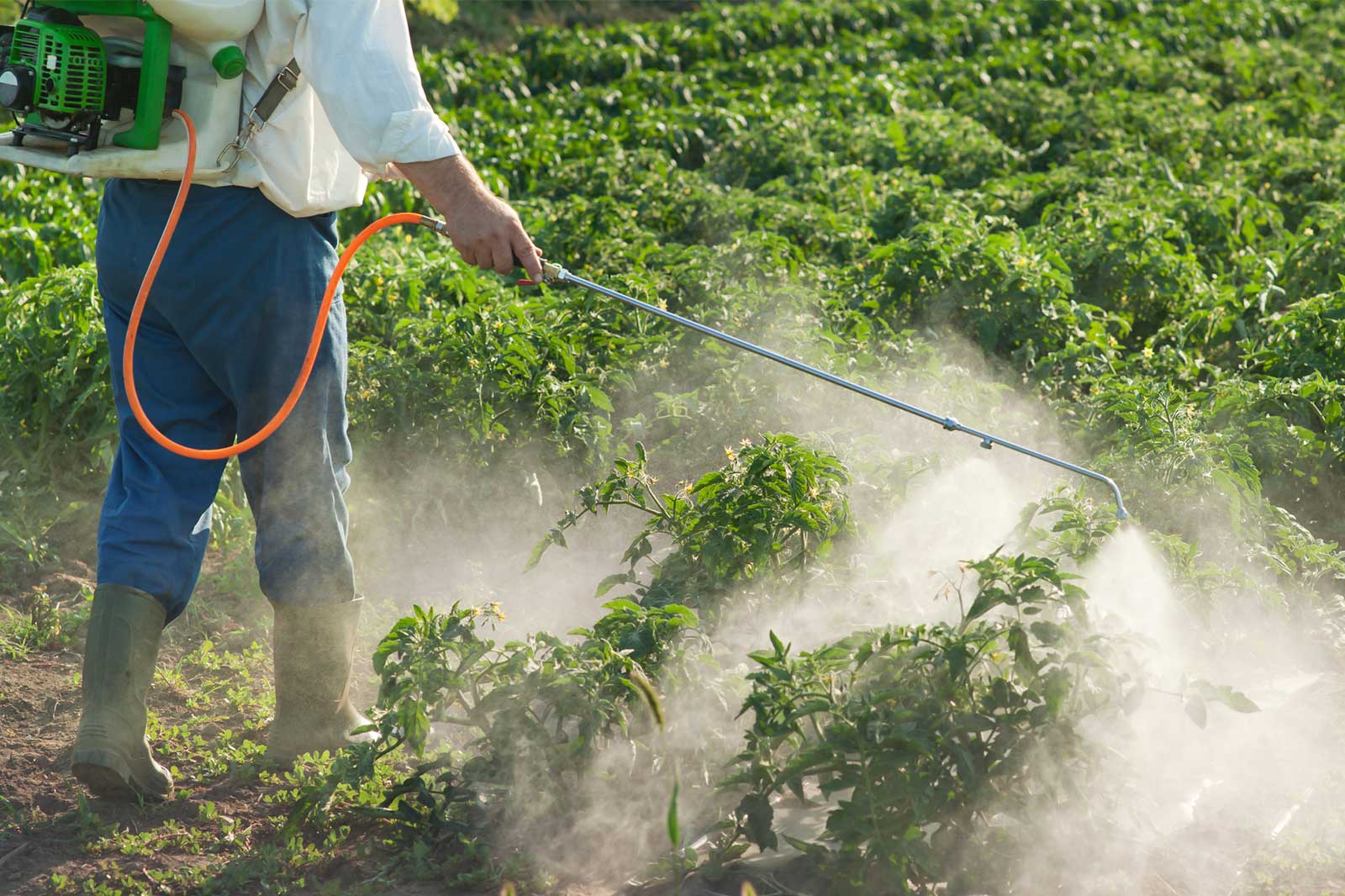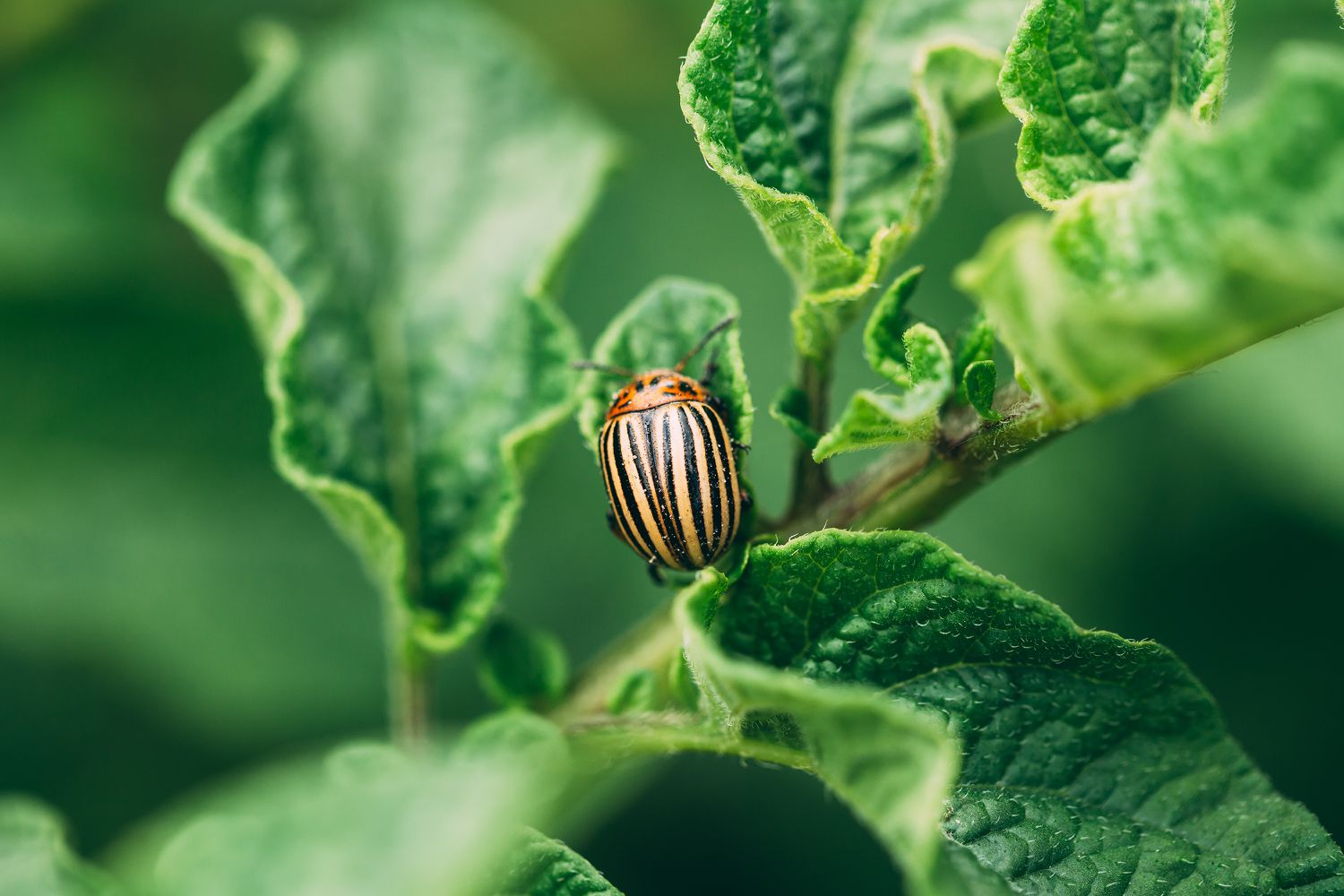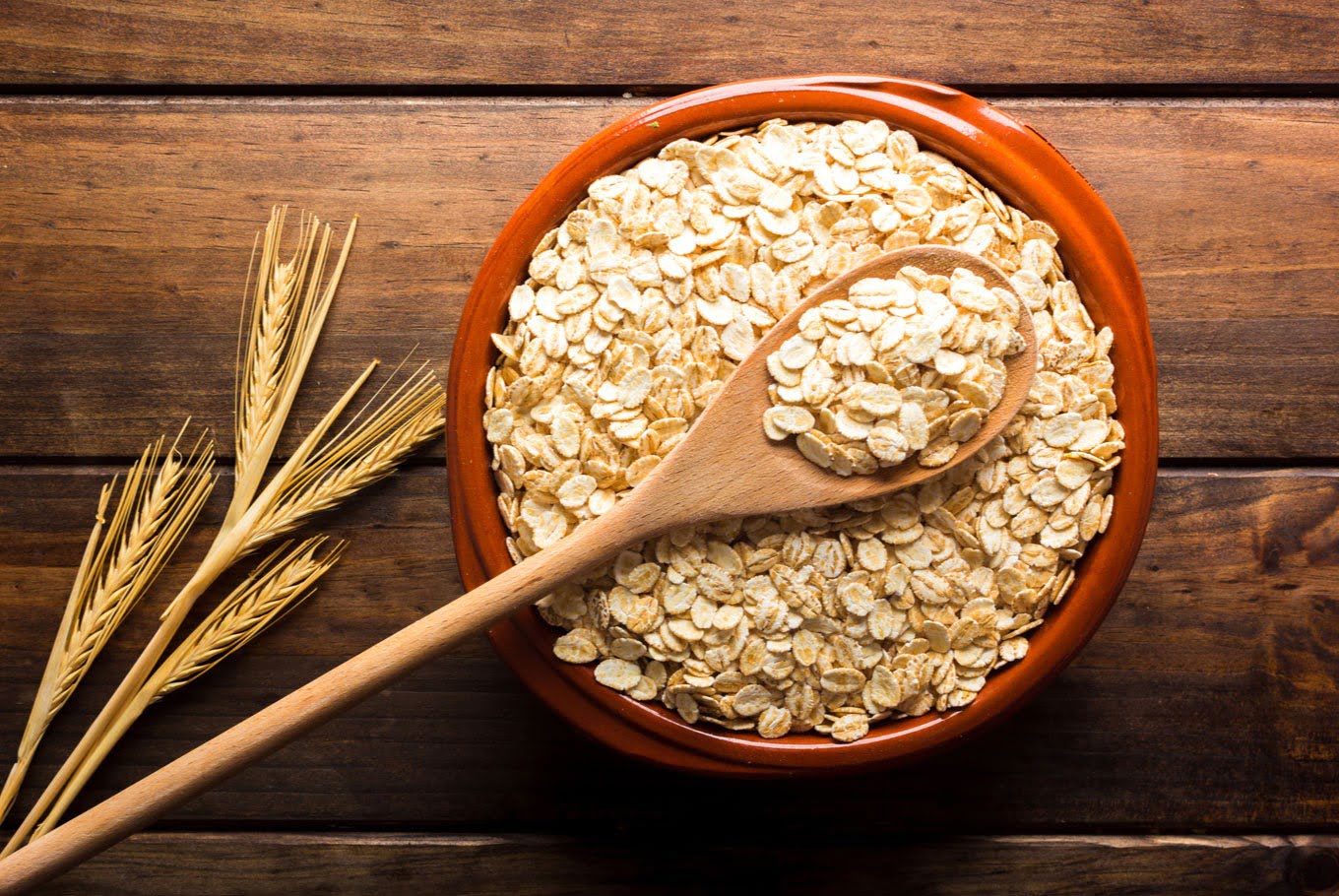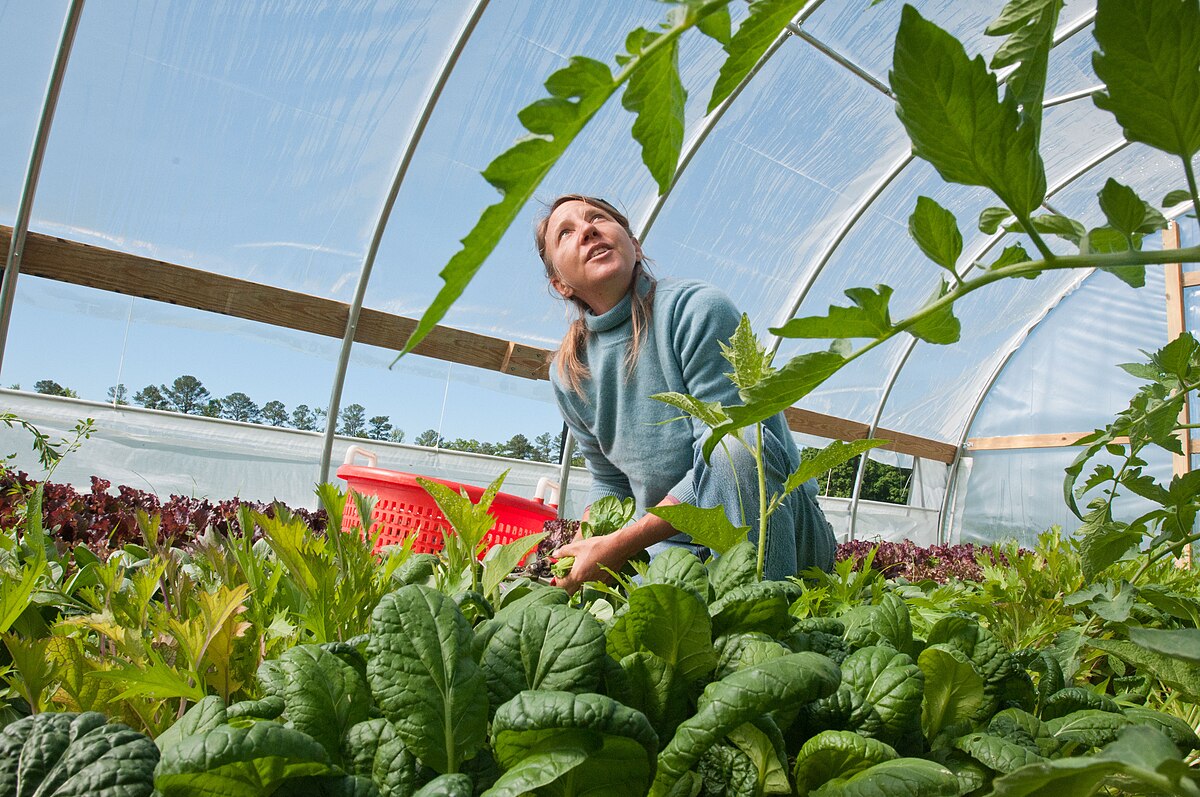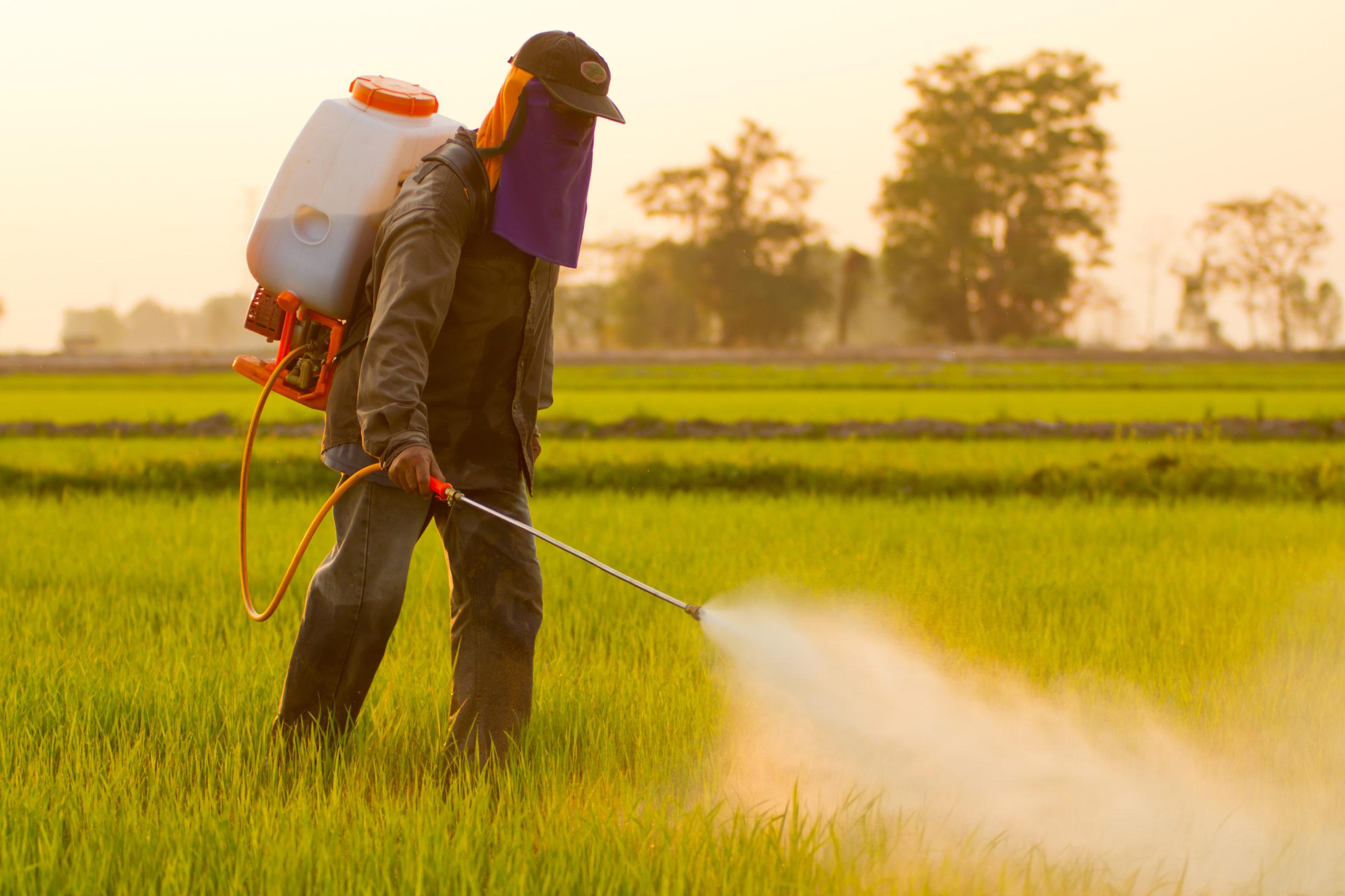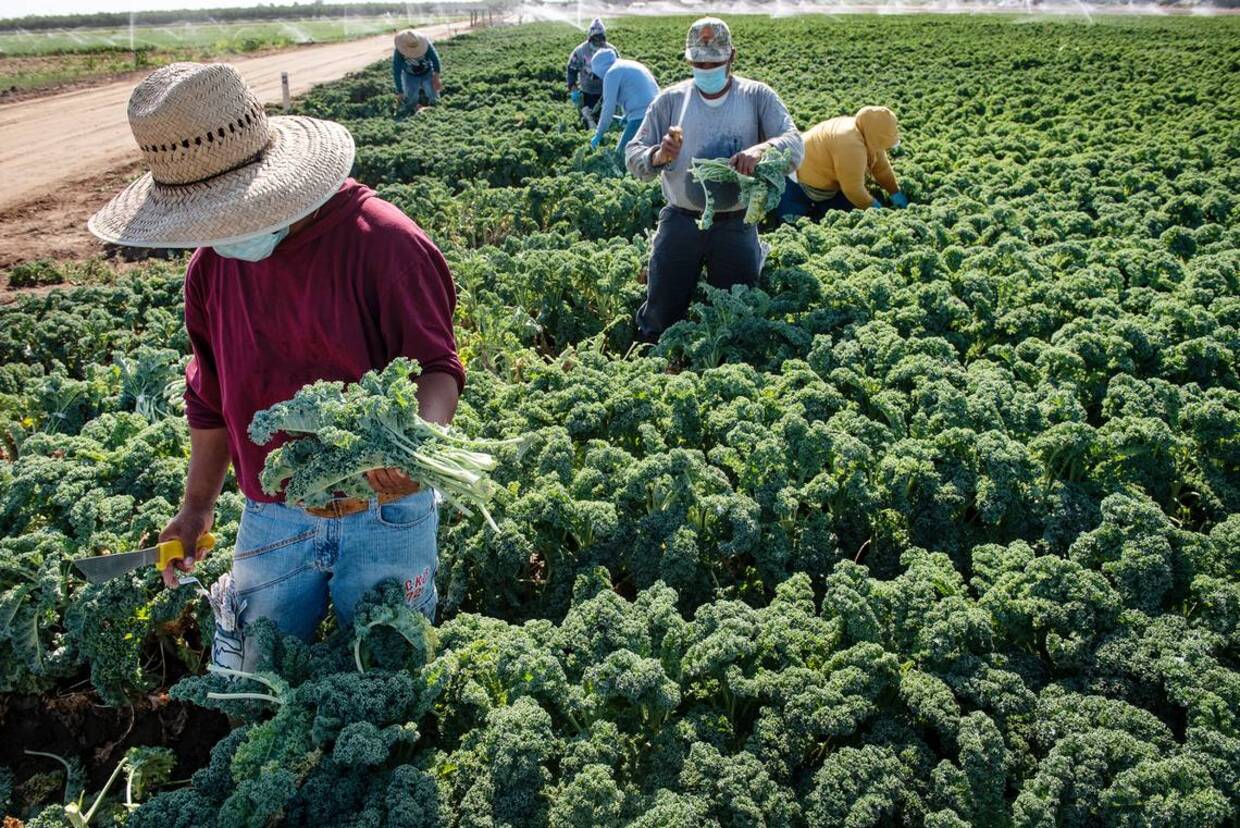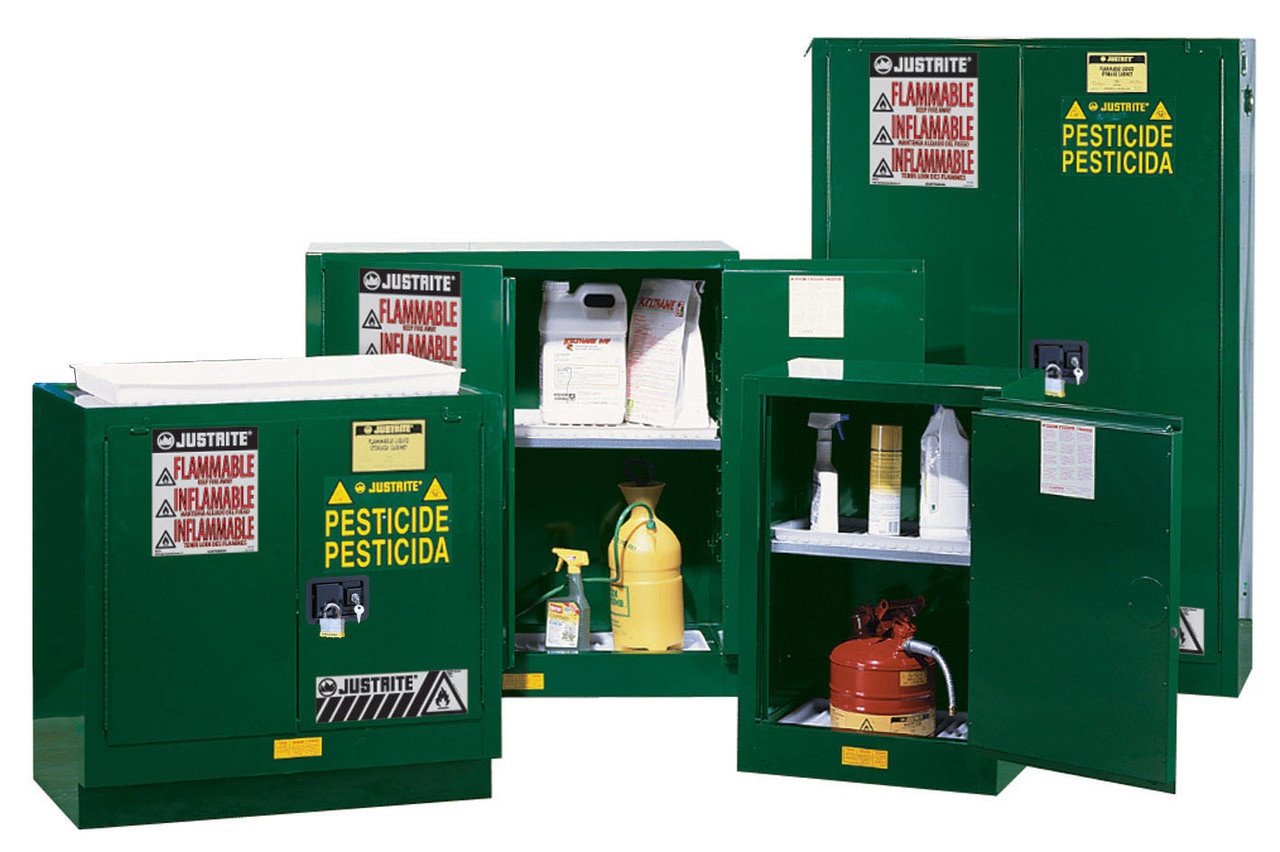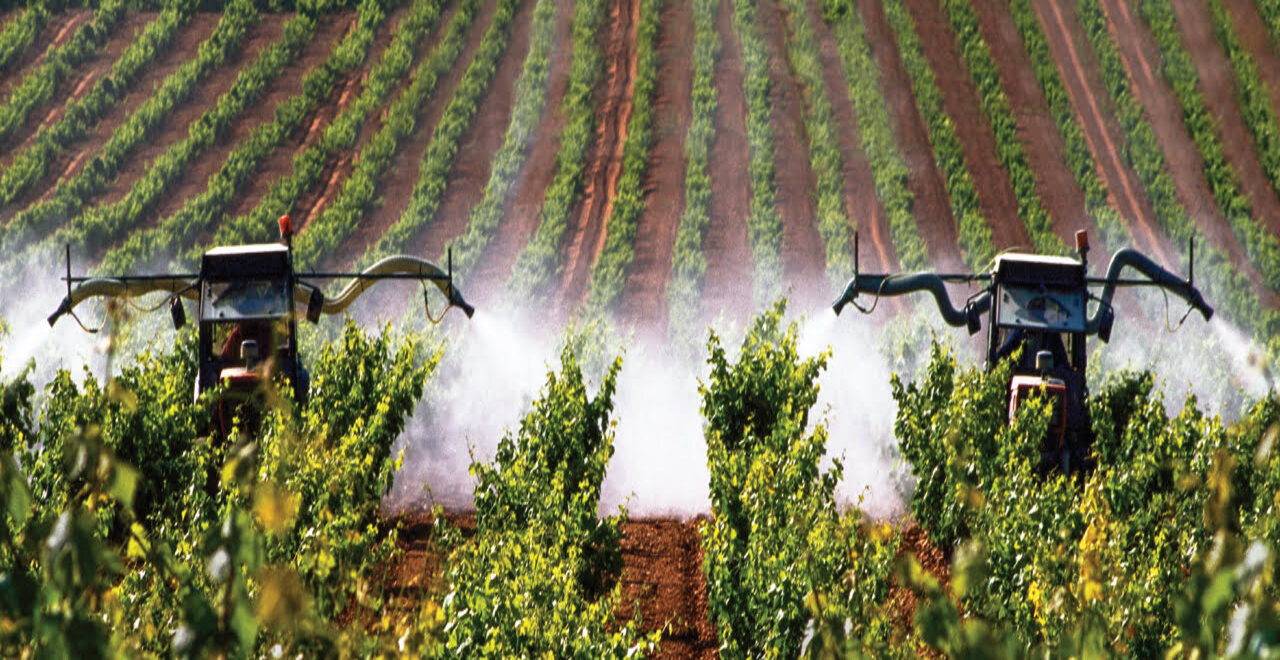Home>Gardening News and Trends>Latest News>What Are Advantages Of Pesticides
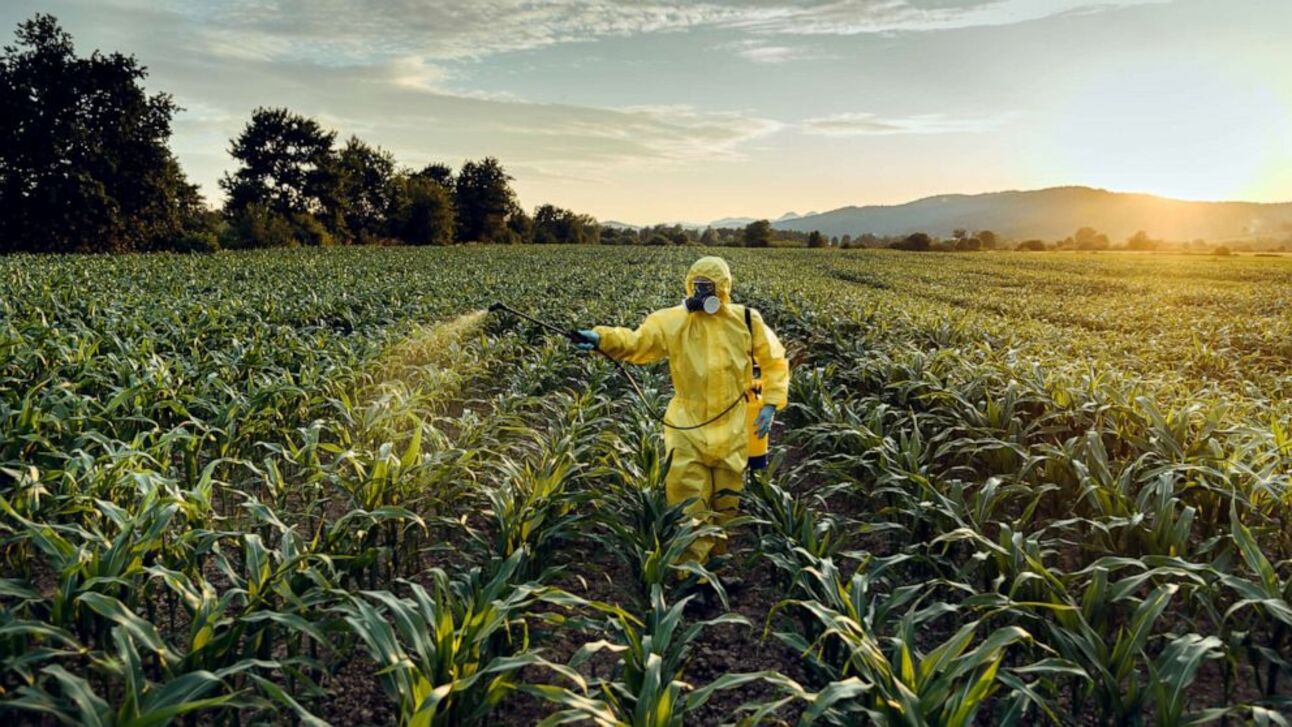

Latest News
What Are Advantages Of Pesticides
Modified: January 22, 2024
Discover the latest news on the advantages of pesticides. Stay informed on the benefits they offer in protecting crops and improving yields.
(Many of the links in this article redirect to a specific reviewed product. Your purchase of these products through affiliate links helps to generate commission for Chicagolandgardening.com, at no extra cost. Learn more)
Table of Contents
- Introduction
- Improved Crop Yield
- Pest Control
- Reduced Crop Losses
- Cost-effectiveness
- Convenience and Ease of Use
- Increased Profitability for Farmers
- Disease Prevention
- Increased Food Production
- Long Shelf Life of Produce
- Improved Quality of Produce
- Reduction in Vector-Borne Diseases
- Environmental Protection
- Conclusion
Introduction
Pesticides are substances or mixtures used to control or eliminate pests, including insects, weeds, fungi, and rodents, that can cause harm to crops, livestock, and humans. These chemical agents have played a significant role in modern agriculture, revolutionizing food production by effectively managing pests and increasing crop yields. While the use of pesticides has garnered some controversy in recent years due to their potential impact on human health and the environment, it is important to acknowledge their crucial role in ensuring food security and supplying the demand for agricultural products.
The advantages of using pesticides in agriculture are numerous and extend beyond simply protecting crops from pests. By employing these chemical agents, farmers can enhance their ability to produce higher yields, reduce crop losses, control diseases, and safeguard public health. Additionally, pesticides contribute to the overall profitability of the agricultural industry and aid in addressing global challenges such as food scarcity and malnutrition.
This article explores the key advantages of using pesticides in agriculture, highlighting how they have transformed modern farming practices and benefiting both farmers and consumers alike. By examining these advantages, we can better understand the importance of pesticides in sustaining food production and ensuring a stable food supply for our growing global population.
Improved Crop Yield
One of the primary advantages of using pesticides in agriculture is the significant improvement in crop yield. Pests such as insects, weeds, and diseases can cause extensive damage to crops, leading to reduced yields and economic losses for farmers. By effectively managing and controlling these pests, pesticides help to increase crop productivity and overall food production.
Pesticides work by targeting specific pests that consume or damage crops. Insecticides, for example, are designed to eliminate harmful insects that feed on crops and transmit diseases. Herbicides, on the other hand, selectively target weeds that directly compete with crops for resources such as sunlight, water, and nutrients. By suppressing or eliminating these pests, pesticides enable crops to thrive and maximize their yield potential.
Furthermore, pesticides can provide a protective barrier for crops, preventing damage from pests and reducing the risk of disease outbreaks. This protection helps to ensure that crops can grow and develop optimally, leading to healthier plants and improved yields.
With the use of pesticides, farmers can achieve more consistent and predictable crop yields, allowing for better planning and management of resources. This reliability in crop production contributes to overall food security and stability in supply chains.
It is important to note that while pesticides are a valuable tool in improving crop yield, they should be used judiciously. Farmers should follow recommended guidelines for pesticide application, including proper dosage, timing, and targeted use, to optimize efficacy and minimize potential environmental and health risks.
Pest Control
Pesticides play a crucial role in pest control, effectively managing and suppressing populations of pests that can cause significant harm to crops. Without proper pest control measures, farmers would face the risk of extensive damage, reduced yields, and even complete crop failure.
Insects, for example, can rapidly reproduce and multiply, leading to infestations that can devastate crops within a short period of time. Pesticides designed to target specific insect pests provide an efficient and targeted solution, reducing the population and preventing further damage. This control of insect pests allows farmers to protect their crops and preserve the quality and quantity of their yield.
Weeds also pose a significant threat to crop production by competing for resources such as water, sunlight, and nutrients. Uncontrolled weed growth can choke crops, hinder their development, and reduce their ability to produce sufficient yields. By using herbicides, farmers can effectively control and manage weed populations, allowing the crops to thrive and reach their full potential.
Another important aspect of pest control is the prevention of diseases. Many pests, such as fungi and bacteria, can cause diseases that can spread rapidly and damage entire crops. Pesticides designed to combat these pathogens help to protect plants from infections, ensuring healthier crops and minimizing the risk of disease outbreaks.
By utilizing pesticides for pest control, farmers are able to mitigate the risks associated with pests and safeguard their investments. These chemical agents provide a proactive measure to prevent and manage infestations, allowing for healthier and more productive crops.
However, it is crucial to note that while pesticides are effective in controlling pests, it is important to balance their use with sustainable farming practices. Integrated Pest Management (IPM) approaches, which combine various pest control methods and prioritize the least harmful measures, should be adopted to minimize the impact on the environment and non-target organisms.
Reduced Crop Losses
Pesticides play a vital role in reducing crop losses, protecting the investment and efforts of farmers. Without adequate pest control measures, crops are highly susceptible to damage from pests such as insects, diseases, and weeds, leading to significant losses in both quantity and quality.
Insect pests have the potential to cause immense damage to crops by feeding on plant tissues, damaging the reproductive structures, and transmitting diseases. Pesticides designed to target specific insect pests help prevent widespread damage and reduce crop losses. By effectively managing these pests, farmers can protect their crops from devastating infestations and ensure higher yields.
Diseases caused by pathogens, including fungi, bacteria, and viruses, can also wreak havoc on crops. These diseases can spread rapidly within a field, resulting in significant crop losses. Pesticides that target these pathogens provide a valuable tool in preventing and managing diseases, minimizing the impact on crop health and reducing losses.
Weeds are another major threat to crop production as they compete with crops for resources, affecting their growth and development. If left uncontrolled, weeds can significantly reduce crop yields. Herbicides are essential in combating weeds, reducing their competition with crops and preventing yield losses.
By utilizing pesticides, farmers can effectively control and manage pests, minimizing crop losses and maximizing their investment in terms of time, labor, and resources. Reduced crop losses not only translate into higher yields but also contribute to enhanced food security and stability in supply chains.
It is worth noting that while pesticides are effective in reducing crop losses, they should be used responsibly and in accordance with recommended guidelines. This includes proper dosage, appropriate timing, and targeted application to minimize any potential negative impacts on the environment and non-target organisms.
Cost-effectiveness
The use of pesticides in agriculture offers significant cost-effectiveness for farmers. While initial costs may be associated with purchasing pesticides and equipment for application, the long-term benefits outweigh these expenses.
Pesticides enable farmers to protect their crops from pests, diseases, and weeds, leading to higher yields and reduced crop losses. This translates into increased income and profitability for farmers. By effectively managing pest populations, farmers can produce larger quantities of high-quality crops, which can be sold at competitive prices in the market.
In addition to higher yields, the use of pesticides also saves costs associated with labor and resources. Without effective pest control measures, farmers would need to invest more time, effort, and resources in manual pest management methods. Pesticides offer a more efficient and streamlined approach, allowing farmers to allocate their time and resources to other essential farming activities.
Pesticides also contribute to the reduction of post-harvest losses. When crops are protected from pests and diseases, the likelihood of spoilage and deterioration decreases. This results in longer shelf life for produce, ensuring that farmers can sell their crops at optimum market conditions and prices.
Furthermore, the cost-effectiveness of pesticides extends beyond the individual farmers’ level. By ensuring higher yields and reduced crop losses, pesticides contribute to overall food security and affordability. Increased food production resulting from effective pest management helps stabilize and lower food prices, benefiting consumers and tackling issues related to global hunger and malnutrition.
Though pesticides provide cost-effective solutions, it is crucial for farmers to adopt integrated pest management (IPM) strategies. By combining various complementary pest control methods and utilizing pesticides prudently, farmers can minimize input costs and potential negative impacts on the environment, human health, and non-target organisms.
Convenience and Ease of Use
Pesticides offer convenience and ease of use for farmers in their pest management practices. These chemical agents provide a straightforward and efficient solution to control pests, saving time and effort compared to alternative methods.
Manual methods of pest control, such as handpicking insects or manually removing weeds, can be labor-intensive and time-consuming. Pesticides eliminate the need for such manual labor, allowing farmers to cover larger areas more quickly and effectively. Farmers can apply pesticides using various methods, including spraying, dusting, or seed treatment, depending on the specific pest and crop requirements.
Moreover, pesticides provide a consistent and reliable defense against pests. With proper application, pesticides create a barrier of protection that can last for a significant period, reducing the need for frequent interventions. This simplicity and convenience in applying pesticides allow farmers to focus their attention on other essential farming activities, such as irrigation, fertilization, and crop monitoring.
The ease of use extends beyond the application process. Pesticides are available in various formulations and packaging options, making them convenient to handle, store, and transport. Additionally, advancements in pesticide technology have led to the development of more user-friendly and targeted products. Farmers can choose from a wide range of pesticides specifically designed to combat specific pests while minimizing the impact on beneficial insects and non-target organisms.
Furthermore, the ease of use of pesticides extends to their compatibility with modern farming practices, such as mechanized farming and precision agriculture. Pesticides can be incorporated into automated spraying systems or applied using advanced equipment, ensuring precise and uniform distribution on the crops.
However, it is essential for farmers to adhere to proper safety measures and label instructions when using pesticides. This includes wearing appropriate protective gear, maintaining calibrated equipment, and storing and disposing of pesticides responsibly. By following these guidelines, farmers can ensure the safe and effective use of pesticides while maximizing their convenience and ease of use.
Increased Profitability for Farmers
The use of pesticides in agriculture contributes to increased profitability for farmers. By effectively managing pests, diseases, and weeds, pesticides help maximize crop yields, reduce losses, and improve the overall financial viability of farming operations.
One of the primary ways in which pesticides enhance profitability is by increasing crop yields. Pests and diseases can cause significant damage to crops, leading to reduced productivity and lower marketable output. By utilizing pesticides, farmers can protect their crops from these threats and achieve higher yields, resulting in greater sales revenue and profitability.
In addition to higher yields, pesticides also contribute to better crop quality. Pests and diseases can negatively impact the appearance, taste, and nutritional value of crops. By effectively managing these issues, pesticides help produce high-quality crops that command premium prices in the market. This leads to increased profitability for farmers through higher selling prices and improved customer satisfaction.
Furthermore, pesticides play a crucial role in reducing crop losses. When pests are left uncontrolled, they can cause extensive damage and result in significant yield reductions. By using pesticides, farmers can minimize these losses and preserve the value of their crops, ensuring a higher return on investment and increased profitability.
Pesticides also contribute to longer shelf life for produce. By protecting crops from pests and diseases, pesticides help maintain the quality and freshness of harvested produce, reducing spoilage and post-harvest losses. This longer shelf life allows farmers to store and transport their crops to distant markets, opening up new opportunities for sales and market expansion.
Moreover, the utilization of pesticides enables farmers to optimize their use of resources. By effectively managing pests and weeds, farmers can reduce the need for excessive irrigation, fertilizers, and other inputs. This not only reduces production costs but also contributes to sustainable farming practices and environmental stewardship.
Overall, the increased profitability resulting from the use of pesticides provides farmers with the financial stability and incentive to continue their agricultural activities. This enables them to invest in modern farming technologies, improve infrastructure, and maintain farming operations for long-term sustainability.
Disease Prevention
Pesticides play a crucial role in disease prevention in agriculture, protecting crops from the devastating impact of various pathogens. Diseases caused by fungi, bacteria, viruses, and other microorganisms can spread quickly and cause significant damage to crops, leading to reduced yields and economic losses for farmers.
Pesticides designed to combat these pathogens provide a proactive approach to disease prevention. They work by targeting and eliminating the pathogens or preventing their growth and spread, ensuring healthier and more resilient crops.
One significant advantage of using pesticides for disease prevention is their ability to control and manage outbreaks quickly and effectively. When a disease outbreak occurs, swift action is crucial to prevent further spread and minimize the potential damage. Pesticides allow farmers to respond promptly and address the issue to prevent its escalation, safeguarding the health and productivity of their crops.
Pesticides also provide a preventive measure against diseases by creating a protective barrier on the plants. When applied correctly, pesticides form a layer on the foliage or other plant parts that inhibit the entry and establishment of pathogens. This preventive action helps to minimize the risk of disease development, especially during periods of high disease pressure.
In addition to preventing diseases in plants, pesticides also contribute to the prevention of diseases in humans and animals. Certain pests, such as mosquitoes and ticks, can transmit dangerous diseases to humans and livestock. Pesticides designed to target these disease vectors help reduce the risk of disease transmission and protect public health.
By preventing diseases in agriculture, pesticides contribute to the overall well-being and sustainability of farming operations. Disease-free crops have a higher market value, ensuring better returns for farmers and supporting their financial stability. Additionally, disease prevention helps maintain a stable food supply, reducing the risk of food shortages and contributing to overall food security.
However, it is important for farmers to use pesticides judiciously to prevent the development of pest resistance and minimize any potential negative impacts on the environment and non-target organisms. Integrated Pest Management (IPM) strategies, which combine various pest control methods and prioritize the least harmful measures, should be employed to ensure effective disease prevention while minimizing risks.
Increased Food Production
Pesticides play a crucial role in increasing food production by protecting crops and improving agricultural productivity. As the global population continues to grow, there is an increasing demand for food. Pesticides enable farmers to meet this demand by ensuring higher yields and minimizing crop losses.
By effectively managing pests, diseases, and weeds, pesticides help maximize crop yields. Pests can cause significant damage to crops, resulting in lower productivity and reduced availability of food. The use of pesticides allows farmers to control pest populations, protecting their crops from damage and ensuring optimal growth and development. This leads to increased food production, helping to sustainably feed the growing population.
Pesticides also contribute to increased food production by protecting crops during critical growth stages. For instance, during the early stages of a plant’s life, it is highly vulnerable to pest attacks. Pesticides can provide a protective shield, ensuring the survival and healthy development of young plants. This protection is essential for establishing a strong and productive crop, ultimately leading to higher food production.
In addition to protecting crops from pests, pesticides also contribute to disease prevention. Diseases caused by pathogens, such as fungi and bacteria, can quickly spread and decimate crops, leading to significant reductions in food production. By utilizing pesticides designed to combat these pathogens, farmers can effectively manage diseases, ensuring healthier crops and higher food yields.
The increased food production resulting from the use of pesticides is crucial for achieving food security. Pesticides help address the challenge of increasing food demand, particularly in regions where agricultural resources are limited. They enable farmers to produce more food per unit of land, ensuring a more efficient use of resources and maximizing agricultural productivity.
Moreover, increased food production contributes to addressing global challenges such as poverty and malnutrition. The availability of an ample food supply ensures access to nutritious food, promoting better health and well-being among communities.
While pesticides are a valuable tool for increasing food production, it is important to use them responsibly and in coordination with sustainable farming practices. Integrated Pest Management (IPM) approaches that combine various pest control methods and emphasize the least harmful measures should be adopted. This ensures that the benefits of increased food production are realized while minimizing potential negative impacts on the environment, human health, and biodiversity.
Long Shelf Life of Produce
Pesticides contribute to the long shelf life of produce, ensuring that harvested crops remain fresh, viable, and marketable for an extended period. This is particularly important in today’s globalized food supply chains, where produce often needs to be transported over long distances before reaching consumers.
Pests, diseases, and environmental factors can accelerate the spoilage and deterioration of harvested crops. Pesticides help prevent or minimize these factors, extending the shelf life of produce and reducing post-harvest losses.
Pesticides play a crucial role in protecting stored crops from pests and pathogens. Insects, rodents, and microorganisms can cause significant damage during storage, leading to contamination, mold growth, and the rapid spoilage of produce. With the use of pesticides, farmers can effectively manage these pests and ensure the quality and safety of stored crops.
Furthermore, pests and diseases can weaken the structural integrity of crops, leading to physical damage and increased vulnerability to spoilage. By controlling and preventing pest and disease infestations, pesticides help maintain the structural integrity of produce, reducing the likelihood of physical damage and extending its shelf life.
Pesticides also contribute to preventing pre-harvest spoilage caused by pests and diseases. If pests and diseases are left unchecked, they can cause premature ripening, rotting, or other forms of damage before harvest. By protecting crops from these threats, pesticides ensure that produce reaches its full maturity and quality, resulting in longer shelf life.
Moreover, pesticides aid in minimizing the impact of environmental stressors, such as extreme temperatures and humidity, on harvested crops. These stressors can accelerate deterioration and spoilage. Pesticides help protect produce from environmental factors and maintain its freshness and quality, especially during storage and transportation.
The long shelf life of produce made possible by the use of pesticides has numerous benefits throughout the food supply chain. It allows for greater flexibility in marketing and distribution, reducing time-sensitive pressures and waste. Consumers also benefit from having access to fresh and high-quality produce, regardless of their geographic location.
It is important to note that proper storage and handling practices, in conjunction with the use of pesticides, are essential for maintaining the long shelf life of produce. Effective temperature control, suitable packaging, and appropriate storage conditions further enhance the shelf life and quality of crops.
Improved Quality of Produce
Pesticides contribute to the improved quality of produce by protecting crops from pests, diseases, and weed competition. As a result, the quality attributes that consumers value, such as appearance, taste, nutritional value, and overall freshness, are enhanced.
Pests can cause physical damage to crops, compromising their appearance and marketability. Insects, for example, can leave blemishes or bite marks on fruits and vegetables, reducing their visual appeal. Pesticides help control these pests, ensuring that crops have a clean and desirable appearance, which is essential for consumer preferences and market demand.
Moreover, diseases and pathogens can lead to the development of rot, mold, or other forms of decay, drastically reducing the quality of produce. Pesticides designed to combat diseases help protect crops from these pathogens, preserving their freshness and prolonging their shelf life. By reducing the occurrence of diseases, pesticides contribute to a higher quality produce that consumers can enjoy for a longer period of time.
Pesticides also play a role in maintaining the nutritional value of crops. Nutrient deficiencies caused by pest damage or competition from weeds can negatively affect the nutritional content of crops. By controlling pests and weeds, pesticides help crops obtain the necessary nutrients for optimal growth and development. This ensures that the produce retains its nutritional value, delivering the essential vitamins and minerals that consumers seek.
Furthermore, the use of pesticides helps to control the presence of mycotoxins, which are toxic substances produced by certain fungi. Fungal infections can not only impact the quality of crops but also lead to the production of mycotoxins, which can be harmful to human health. By preventing these infections, pesticides contribute to the production of safe and high-quality crops that meet food safety standards.
By protecting crops from pests and diseases, pesticides also contribute to the taste and flavor of produce. Pests can affect the flavor profile of fruits, vegetables, and other crops, leading to undesirable taste or texture. Pesticides help maintain the natural flavors and characteristics of crops, resulting in a more enjoyable eating experience for consumers.
Ultimately, the improved quality of produce resulting from the use of pesticides satisfies consumer preferences and demands. It ensures that consumers have access to visually appealing, flavorful, and nutrient-rich produce. This positively impacts consumer satisfaction, consumption patterns, and supports the overall sustainability of the agricultural industry.
It is important for farmers to use pesticides responsibly, following recommended guidelines and adhering to regulatory standards to ensure that the improved quality of produce is achieved without compromising human health or the environment.
Reduction in Vector-Borne Diseases
Pesticides play a significant role in reducing the spread and prevalence of vector-borne diseases, which are illnesses transmitted to humans and animals by vectors such as mosquitoes, ticks, and fleas. These diseases can have detrimental effects on public health and pose significant challenges to communities worldwide.
Mosquitoes, for example, are notorious vectors for diseases such as malaria, dengue fever, Zika virus, and West Nile virus. Pesticides designed to target and control mosquito populations help reduce their numbers and limit the transmission of these diseases. By spraying insecticides in areas where mosquitoes breed or using treated bed nets, the incidence of mosquito-borne diseases can be significantly reduced.
Ticks are another vector that can transmit diseases such as Lyme disease and tick-borne encephalitis. Pesticides, including acaricides, can be applied to control tick infestations and minimize the risk of disease transmission to humans and animals.
Pesticides also contribute to the control of fleas, which can transmit diseases such as bubonic plague and various types of typhus. Effective flea control measures help reduce the risk of these diseases, protecting both human and animal health.
By targeting these disease vectors, pesticides offer an essential line of defense in reducing the prevalence and impact of vector-borne diseases. This reduction helps protect communities, promote public health, and decrease the burden on healthcare systems.
It is important to note that while pesticides play a significant role in controlling vector-borne diseases, they should be used in conjunction with other preventive measures. Integrated approaches, such as proper sanitation practices, use of protective clothing, and vector surveillance, should be employed to minimize reliance on pesticides and promote sustainable disease control strategies.
Furthermore, the responsible use of pesticides is crucial to minimize any potential negative impacts on non-target organisms, the ecosystem, and human health. Appropriate dosage, timing, and application methods should be followed, adhering to recommended guidelines and regulatory standards.
Overall, the reduction in vector-borne diseases achieved through the use of pesticides improves the lives of communities at risk. It helps create healthier environments, reduce the burden of disease, and contribute to overall public well-being.
Environmental Protection
Pesticides, when used responsibly and in accordance with recommended guidelines, can contribute to environmental protection by ensuring sustainable and efficient agricultural practices.
One of the ways in which pesticides aid in environmental protection is through the reduction of land requirements for agriculture. By controlling pests, diseases, and weeds, pesticides allow farmers to maximize the productivity of their existing land, minimizing the need for clearing additional natural habitats for agriculture. This helps conserve biodiversity and natural ecosystems, preserving the habitats of various plant and animal species.
Pesticides also promote efficient water management in agriculture. By controlling weed populations, pesticides reduce the competition for water resources. This enables more efficient water usage, allowing farmers to effectively irrigate crops and conserve water, an increasingly limited and valuable resource. Efficient water management reduces the strain on freshwater ecosystems and contributes to overall water conservation efforts.
Furthermore, the use of pesticides can reduce greenhouse gas emissions in agriculture. Without proper pest control measures, larger areas of land might be required for agriculture to compensate for yield losses caused by pests. This expansion of agricultural land results in deforestation, which contributes to greenhouse gas emissions. By protecting crops and maximizing yields, pesticides enable farmers to produce more food on existing agricultural land, minimizing the need for deforestation and reducing carbon emissions.
Integrated Pest Management (IPM) approaches, which prioritize the least harmful methods of pest control, are also environmentally friendly. By incorporating cultural practices, biological controls, and targeted pesticide use, IPM reduces the overall reliance on pesticides. This helps minimize the impact on non-target organisms, including beneficial insects, pollinators, and natural predators, thus preserving biodiversity and ecosystem balance.
It is important to note that pesticide application should be carried out responsibly, following recommended application rates, handling procedures, and safety measures. Adhering to proper pesticide management practices can reduce the potential for pesticide runoff into water bodies and limit the impact on aquatic ecosystems and non-target organisms.
Research and development efforts continue to focus on developing safer and more environmentally friendly pesticides. These innovations aim to minimize the negative ecological impact while maintaining effective pest control. Long-term studies and ongoing monitoring help evaluate the environmental effects of pesticides and inform regulatory decisions.
By balancing the benefits of pesticide use with sustainable farming practices, farmers can contribute to environmental protection while ensuring food security and sustaining the growing global population.
Conclusion
Pesticides have undeniably played a significant role in modern agriculture, providing numerous advantages that contribute to the sustainability and efficiency of food production. These chemical agents have revolutionized pest management practices, effectively combating pests, diseases, and weeds that can harm crops.
The advantages of using pesticides in agriculture are extensive. They include improved crop yield, pest control, reduced crop losses, cost-effectiveness, convenience and ease of use, increased profitability for farmers, disease prevention, increased food production, long shelf life of produce, improved quality of produce, reduction in vector-borne diseases, and environmental protection.
Pesticides help optimize crop yield by effectively managing pests, diseases, and weeds, ensuring that crops can grow and develop optimally. This leads to increased food production, addressing global challenges such as food scarcity and malnutrition. The use of pesticides also reduces crop losses, protecting farmers’ investments and contributing to overall food security.
Furthermore, pesticides offer cost-effective solutions by increasing yields, reducing labor and resource requirements, and preventing post-harvest losses. The convenience and ease of use of pesticides simplify pest management activities and optimize farming operations, saving time and effort for farmers.
Pesticides contribute to improved quality and longer shelf life of produce by protecting crops from pests, diseases, and environmental stressors. They also aid in the prevention of vector-borne diseases, safeguarding public health. The responsible use of pesticides helps protect the environment, conserve natural resources, and promote sustainable agricultural practices.
While recognizing the advantages of pesticides, it is important to remember that their use should be accompanied by responsible management practices. Integrated Pest Management (IPM) approaches that prioritize the least harmful pest control methods should be adopted to minimize risks and promote sustainability.
In conclusion, the advantages of pesticides in agriculture cannot be overlooked. They have transformed modern farming practices, ensuring higher yields, reducing crop losses, and addressing global food security challenges. By utilizing pesticides responsibly and in conjunction with sustainable practices, farmers can maximize the benefits while minimizing potential risks, creating a balance between agricultural productivity, environmental preservation, and public health.
